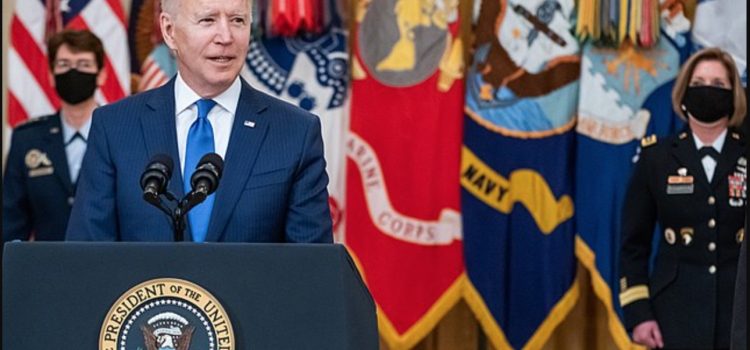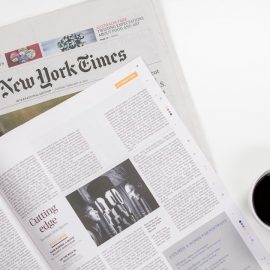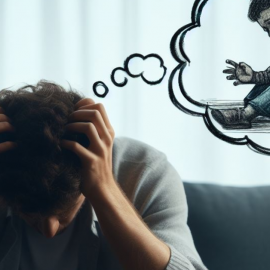
This is a free excerpt from one of Shortform’s Articles. We give you all the important information you need to know about current events and more.
Don't miss out on the whole story. Sign up for a free trial here .
Why are American politicians so old? Why are people debating the age of U.S. politicians? How old is too old?
With the recent celebration of President Biden’s 80th birthday, some are wondering whether he’s too old to run for reelection. This discussion is part of a larger set of questions centering on why American politicians tend to be so old.
Read on to learn why American politicians are typically older, including how age impacts voters’ views.
American Politicians Skew Older—Why?
President Biden celebrated his 80th birthday on Nov. 20, and people across the political spectrum are debating whether he’s too old to run for reelection. This is part of a larger conversation about why American politicians are so old, in general. Some are concerned that the overrepresentation of older people among elected officials threatens democracy. By contrast, others argue that it’s ageist and anti-democratic to blame the nation’s problems on elderly politicians.
In this article, we’ll explore a variety of perspectives on the topic of U.S. politicians’ ages. To begin, we’ll discuss Biden’s age and the ages of Congress members. Then, we’ll explore the debate over whether the high average age of U.S. elected officials threatens democracy.
What Are People Saying About Biden’s Age?
Views on Biden’s age fall into two main camps: Either he’s too old to serve as president, or he isn’t.
Perspective 1: Biden Is Too Old to Serve as President
According to a recent poll, 76% of Americans from across the political spectrum feel that Biden is too old to serve as President. Another recent poll reveals that six in 10 Democrats don’t want Biden to run for re-election, and some of them cite his old age as their main concern. People are worried about Biden’s cognitive abilities, such as the fact that he sometimes makes statements that his aides later walk back.
Some Democratic and Republican officials share these worries. Many Democratic officials fear that as Biden gets older, his energy levels will decrease and he’ll be more prone to gaffes. Several Republican officials are drawing attention to Biden’s recent gaffes and claim that he’s mentally unfit to be President.
Perspective 2: Biden Isn’t Too Old to Serve as President
Others aren’t as concerned about Biden’s age. Several White House officials and advisers insist that despite his age, Biden is successfully juggling his many duties and busy schedule. Biden himself has weighed in on the topic, contending that his age doesn’t interfere with his ability to effectively serve as president.
Perspective 3: Let’s Stop Focusing on Biden’s Age
Furthermore, it’s possible the recent hype around Biden’s age blows the public’s concerns about American politicians being so old out of proportion. Some argue that critiquing older politicians’ age is a well-worn campaign strategy. Biden’s political opponents may be drawing attention to his age as a disingenuous way to discredit him.
The Current Congress Is the Oldest in History
Biden isn’t the only old American politician: Today’s U.S. Congress is on average the oldest in the nation’s history and the average age is higher than that of the nation. The median age in the U.S. is 38, while the median age of the current Congress is 60. Only 7% of the current House of Representatives are Millennials, and there’s only one Millennial senator.
Five members of the Senate and 11 members of the House are over 80. Some of these elderly elected officials have been in the limelight recently due to concerns about their age. For instance, colleagues of Democratic Senator Dianne Feinstein recently shared that the 88-year-old is experiencing issues with her memory that impair her ability to work. Additionally, a recent poll revealed that two in three Iowa voters feel that 89-year-old Republican Senator Chuck Grassley’s age makes him unfit for his role, despite no ready evidence that his mental acuity has declined. (Still, Grassley was reelected in November to an eighth six-year term.)
Why Is There a Lack of Age Diversity in Congress?
There are several reasons why American politicians tend to be much older, creating a lack of age diversity in the U.S. Congress. First, older people are more likely to have the experience, qualifications, financial resources, and networks needed to successfully launch a campaign for public office. Second, even when younger people run for office, they’re less likely to be elected. One reason for this is that voter turnout is higher among older people, and older people tend to vote for older candidates. Third, there aren’t many openings for spots in Congress.
Should We Blame Politicians’ Old Age for America’s Problems?
Among those debating Biden’s age and the average age of Congress, there’s no consensus on whether politicians’ advanced ages are a problem for the country. In this section, we’ll examine two perspectives.
Perspective 1: Democracy Is Suffering Because Politicians Skew Older
Some claim that the overrepresentation of older people in U.S. politics poses problems for American democracy. A recent poll shows that nearly eight in 10 Americans across the political spectrum believe that the current age of U.S. political leaders is a problem. Several opinions underlie this perspective.
Opinion 1: Older people experience cognitive decline. First, some worry that because older people are more susceptible to cognitive decline, it’s problematic to have so many elderly people leading the country. As you age, it takes you longer to process and recall information, and your multitasking abilities gradually decline.
Opinion 2: Older generations fail to address many young citizens’ concerns. Second, there’s a concern that because Congress is older than the U.S. electorate, elected officials are less likely to address many younger people’s voting issue priorities. For instance, younger generations rank climate change legislation higher on their list of priorities. Furthermore, younger and older generations tend to hold different political opinions: For example, older people tend to prefer smaller government.
Additionally, because Baby Boomers (ages 58-76) are overrepresented in Congress, some worry that their nostalgia for the mid-century past may be impairing their ability to plan for the future. Baby Boomers may prioritize policies that return to the country to that idealistic vision over policies that address the current economic and social circumstances.
Opinion 3: A lack of age diversity means a general lack of diversity. Third, some point out that because there’s a lack of age diversity in Congress, there’s also a lack of other forms of diversity. This is because older generations are disproportionately white, male, heterosexual, able-bodied, Christian, wealthy, and college-educated. Some worry that older generations may have a bias toward policies that support the interests of these identity groups. For instance, people over 55 own two-thirds of the country’s wealth, which means older elected officials may be less attuned to the needs of lower-income citizens and less likely to pass legislation that supports poor families.
Perspective 2: America’s Problems Aren’t Due to Officials’ Age, and It’s Ageist to Think So
By contrast, others reject the idea that issues with U.S. democracy are due to politicians’ high average age. According to a recent poll, around 10% of Americans believe politicians being too old isn’t a problem. Let’s examine several opinions behind this perspective.
Opinion 1: The fixation on politicians’ age distracts from more important considerations. First, those who believe there’s too much scrutiny over elected officials’ age advocate that we evaluate politicians’ suitability for office on their policies, viewpoints, and accomplishments, rather than their old age. Furthermore, some worry that the focus on politicians’ ages distracts from fixing other aspects of the political system that threaten democracy. They claim that we should focus on other issues, such as overhauling our two-party system, addressing extremist politics, and making politics more inclusive for people of all ages and backgrounds.
Opinion 2: It’s ageist to blame America’s problems on officials’ old age. Second, some claim that regardless of whether the lack of age diversity in Congress is a problem, it’s ageist to claim or imply that an American politician can be too old to be a capable leader. Ageist beliefs stereotype and discriminate against people on the basis of their age. The media’s fixation on politicians’ age could perpetuate ageism.
Opinion 3: There are benefits to having older politicians. Finally, some believe that older politicians improve democracy rather than threaten it. They argue that older people tend to have more political experience, equipping them with wisdom to make thoughtful political decisions. Furthermore, as you age, you get better at making compromises and resolving conflicts—skills that may make you a better legislator.

Want to fast-track your learning? With Shortform, you’ll gain insights you won't find anywhere else .
Here's what you’ll get when you sign up for Shortform :
- Complicated ideas explained in simple and concise ways
- Smart analysis that connects what you’re reading to other key concepts
- Writing with zero fluff because we know how important your time is






